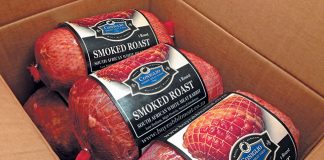Levies are currently voluntary and Samac is hoping to implement a statutory levy through the Marketing of Agricultural Products Act no. 47 of 1996. This would make the levy compulsory for producers. Carl Henning, chairperson of Samac, said that those who were paying their levies were fed up with having to support the rest of the industry, who all benefit from the work Samac does. “For example, we successfully negotiated the increase in government water allowances for the whole industry. That is a feat that can’t be achieved by an individual farmer.”
Those opposed to the implementation of a statutory levy said that it would result in the industry being heavily regulated by government. But Henning said this would not be the case. “The guidelines in the act stipulate that 20% of monies be spent on transformation. The government can also set a guideline for the amount of the levy, but it will not mean that the market and pricing will be regulated.”
The act, however, authorises “the establishment and enforcement of regulatory measures to intervene in the marketing of agricultural products, including the introduction of levies on agricultural products”. Alan Sutton, managing director of Sabie Valley Macadamias, said that by implementing statutory levies, government would have sweeping powers over the quantity of macadamias exported or imported, as well as the form in which it is done.
“Currently, we export about 30% of our nuts as nut in shell. If government decided that, for the sake of job creation, they had to be exported shelled to make more jobs available, it could destroy the market, as was the case in Kenya. Exporting an additional 30% shelled nuts would cause an oversupply of kernel in the market and prices would plummet.”
At the time of going to press, voting on whether to implement a statutory levy was ongoing. However, farmers not belonging to Samac were informed about the vote in newspaper notices a week in advance, which many felt was not adequate.
Sutton said even farmers who could attend the meetings did not know what they were voting for. “No one has read the act properly and it will be a sad indictment on the industry if we had to revert to a nanny state, where government tells us what to do with our produce and subjects farmers to random inspections.”












